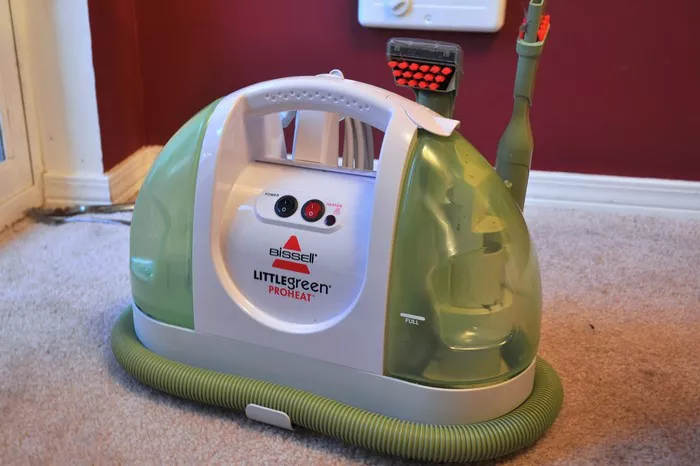Steam cleaning is a highly effective method for maintaining the cleanliness and longevity of furniture. It involves using steam from heated water to penetrate deep into the fibers of upholstery, effectively loosening dirt, stains, and allergens without the need for harsh chemicals. The benefits of steam cleaning for furniture care are numerous, including its ability to sanitize surfaces, remove odors, and preserve the integrity of delicate materials. Unlike traditional cleaning methods, steam cleaning not only cleans but also disinfects, making it an ideal choice for households with pets, children, or allergy sufferers.
Types of Furniture Suitable for Steam Cleaning
Most types of furniture can be safely cleaned using a steamer, including fabric upholstery, leather, microfiber, and even wooden surfaces. However, it’s essential to check the manufacturer’s instructions or consult with a professional cleaner to ensure that steam cleaning is appropriate for your specific furniture piece. Generally, steam cleaning is safe for most synthetic and natural fabrics, but delicate materials such as silk or velvet may require special care.
Preparation Steps
Before steam cleaning your furniture, it’s crucial to prepare the surfaces properly to achieve the best results. Start by vacuuming the furniture to remove loose dirt, dust, and debris. Pay special attention to crevices, seams, and areas where pet hair or crumbs may accumulate. Next, treat any visible stains or spots with a pre-treatment solution suitable for the fabric type. Allow the pre-treatment to penetrate the stain according to the product instructions before proceeding with steam cleaning.
Steam Cleaner Operation
Operating a steam cleaner requires following a few simple steps to ensure optimal performance and safety. Begin by filling the steam cleaner’s reservoir with distilled water, as tap water may contain minerals that could clog the machine over time. Attach the appropriate cleaning nozzle or brush to the steam wand, depending on the surface you are cleaning. Turn on the steam cleaner and allow it to heat up until steam begins to emit consistently. Once the steam is ready, hold the nozzle a few inches away from the furniture surface and move it in slow, overlapping strokes to ensure thorough cleaning.
Cleaning Techniques
When using a steam cleaner on furniture, it’s essential to follow proper cleaning techniques to avoid damaging the fabric or wood. Always move the steam cleaner in the direction of the fabric grain or wood grain to prevent distortion or fiber damage. Use a consistent speed and apply gentle pressure to ensure even cleaning without saturating the fabric or wood. For heavily soiled areas, you may need to make multiple passes with the steam cleaner, allowing the steam to penetrate deeply and lift away dirt and stains.
Stain Removal Tips
Steam cleaning is highly effective at removing many common stains from furniture, including food spills, pet stains, and water marks. For stubborn stains, you may need to use a mild cleaning agent in conjunction with the steam cleaner. However, always test the cleaning agent on a small, inconspicuous area of the furniture first to ensure compatibility and prevent damage. Avoid using bleach or harsh chemicals, as these can discolor or weaken the fabric fibers. Instead, opt for gentle, eco-friendly cleaners specifically formulated for upholstery or wood surfaces.
Post-Cleaning Care
After steam cleaning your furniture, allow it to dry thoroughly before using or applying any protective treatments. Depending on the fabric type and humidity levels, drying times may vary, but using fans or opening windows can help expedite the process. Avoid sitting or placing objects on the furniture until it is completely dry to prevent re-soiling or water stains. Once dry, consider applying a fabric or leather conditioner to moisturize and protect the upholstery, keeping it looking fresh and extending its lifespan.
Safety Precautions
While steam cleaning is a safe and eco-friendly cleaning method, it’s essential to observe some safety precautions to prevent damage to the furniture or harm to the user. Always wear protective gloves and goggles when handling hot steam or cleaning agents to avoid burns or eye irritation. Keep children and pets away from the area being cleaned to prevent accidents or injuries. Additionally, be mindful of electrical cords and outlets when using the steam cleaner to avoid tripping hazards or damage to the machine.
Conclusion
Steam cleaning is a versatile and efficient method for keeping furniture clean, fresh, and well-maintained. By following proper techniques and safety precautions, you can effectively remove dirt, stains, and allergens from a variety of materials without the need for harsh chemicals. Whether you’re cleaning fabric upholstery, leather sofas, or wooden chairs, a steam cleaner can help restore the beauty and longevity of your furniture while promoting a healthier living environment for you and your family. With regular steam cleaning and proper care, your furniture can continue to look and feel its best for years to come.

